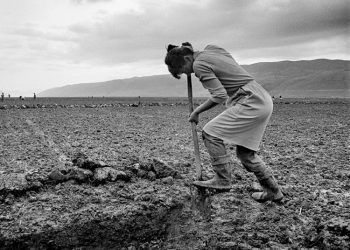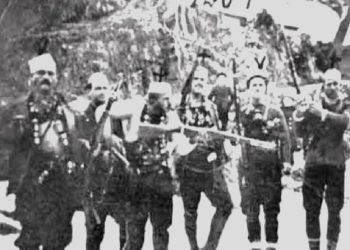Dashnor Kaloçi
The fourth part
Memorie.al/ Published some archival documents taken from the Central State Archive in Tirana (fund of the former Central Committee of the ALP), where is the political diary of Enver Hoxha in the period March-June 1981, when demonstrations and protests began of the people of Kosovo, who rose up to demand their legitimate rights and freedoms, just as the other nationalities and nations that made up the Federal Republic of Yugoslavia had and enjoyed them. The entire political diary of the main leader of communist Albania, where he and the official Tirana of that time, closely followed the events of Kosovo and spoke openly in public, coming out openly in defense of our Kosovar brothers across the border who lived for centuries in the lands ethnic groups, who rose up to demand their legitimate rights and freedoms as they enjoyed and enjoyed the other nationalities and nations of Yugoslavia at the time, and accusing official Belgrade of the discriminatory policies pursued by the Titoist regime until at the time against Kosovo and the entire Albanian population living under Yugoslavia, and also accusing the Kosovo leadership of being “pro-Tito”, and “sold to the Belgrade leadership”. But contrary to what he said in words, he never did it with deeds and the attitude that official Tirana maintained towards the events of Kosovo in the spring of ’81, seems to have been just enough for the facade and only for public consumption in the international arena, as the regime Enver Hoxha’s communist regime from 1949, when official Tirana broke off relations with Marshal Tito’s Yugoslavia, until the end of the 1980s, pursued a policy towards Kosovars who came to Albania to escape the persecution of the Titoist regime. even more cruel to them, imprisoning, torturing and interning them, with the accusations of “UDB agents”!
“We must also make an analysis of the attitudes held by the various chancelleries, that is, to determine and recognize which ambassadors of the countries of the world, especially of the countries of Europe and in particular of those countries that have or that they can have influence over the Yugoslav government, have been pro-us, against the actions of the Yugoslavs and have condemned them. Here let us not forget that there are also those who have been shown to be neutral. So far, we have seen that some newspapers have written more realistically in favor of the issue of the people of Kosovo and our position. Such are some newspapers and journalists of the Federal Republic of Germany, ie the West Germans, then come the Austrians. We do not even have diplomatic relations with West Germany, while relations with Austria are good. The Austrians hold this position because they have contradictions on minority issues with the Yugoslavs, while the West Germans do not. “Therefore, we have to judge why West Germany has a more realistic attitude towards Kosovo Albanians and towards Albania, which has always criticized it and is in disagreement with it.”
This is what the former main leader of communist Albania, Enver Hoxha, wrote in his diary of May 18, 1981, focusing on the events in Kosovo, which at that time was the Autonomous Province of the Federal Republic of Yugoslavia, where just months after the death of Marshal Josof Broz Tito (May 4, 1980), who ruled the country for almost 35 years from the end of World War II, in the Yugoslavia he left behind, internal unrest would begin. , such as the mass demonstrations and protests of the people of Kosovo who rose up to demand their legitimate rights and freedoms, just as the other nationalities and nations that made up the Federal Republic of Yugoslavia had and enjoyed, to go as far as calls “Kosovo Republic”.
As we will see from these archival documents where the political diary of Enver Hoxha is located, the main leader of communist Albania and official Tirana, followed closely the events of Kosovo and spoke publicly, coming out openly in defense of our Kosovar brothers. across the border living for centuries in their ethnic lands and accusing official Belgrade of the discriminatory policy it had pursued until then against Kosovo and the entire Albanian population living under Yugoslavia, and also accusing the Kosovo leadership of being “pro-Tito “, And” sold to the Belgrade leadership “.
But contrary to what he said in words, he never did it with deeds and the attitude that official Tirana held towards the events of Kosovo in the spring of ’81, seems to have been just enough for the facade and only for public consumption in the international arena, as the regime Enver Hoxha’s communist regime from 1949, when he broke off relations with Marshal Tito’s Yugoslavia, until the end of the 1980s, pursued an even more policy towards Kosovars who came to Albania to escape the persecution of the Titoist regime. savage against them, imprisoning, torturing and deporting them, with the accusations of “UDB agents”!
Likewise, although in the events of the spring of 1981 and onwards, official Tirana ostensibly supported the demonstrations of the people of Kosovo and their demands for a “Kosovo Republic”, Enver Hoxha would never want that to become a reality. because in a way, two Albanian states would be created, where Kosovo would become a factor and Albania under his leadership, would be defactorized in the international arena. In this context, immediately after those events, official Tirana intensified the persecution and violence against Kosovars who were in Albania, arresting and sentencing to prison some Kosovar intellectuals, such as: Selim Kelmendi, Estref Kelmendi, Shefqet Kelmendi, Naimk Lucin, etc., who were arrested in 1983, accused of: “attempting to assassinate the main leader of the Party, during his visit to the Museum” Gjergj Kastrioti Skënderbeu “in Kruja in 1980”.
And all this was done to lower the reputation of Kosovars and Kosovo in the eyes of the Albanians of the homeland. However, these remain the object of analysis that are not the subject of this article, where we are publishing only the political diary of Enver Hoxha, which he has kept in that period of time, which Memorie.al since March of this year, continues to publish in full in some issues of the historical dossier section.
Followed by the last number
Enver Hoxha’s political diary on the events of demonstrations and protests of the people of Kosovo in the spring of 1981
TUESDAY 2 JUNE 1981
KOSOVO EMIGRANTS, SERBS CALL YOU TERRORISTS
records
Ahead of the Yugoslav genocide in Kosovo, the Socialist People’s Republic of Albania raised its voice for the Yugoslavs to stop killing, torturing, imprisoning, persecuting and oppressing Kosovars. We called on them to reduce bloodshed, to maintain composure, not to be hostile to Albanians. The Yugoslavs accuse us of interfering in their internal affairs, that it is socialist Albania that incites Kosovars, that incites you Kosovar brothers and other areas in emigration, to protect your sisters and cousins who are being killed by Serbs. We have neither done nor are we doing this, but the whole world should be clear that Albania is a nation, that Albanians are a people and not as they say and as they love Herljevic, Ristic, Istanbul, Kolishevski, Vukmanovic and Fadil Hoxha and Xhavit Nimani. Albania will never allow the “world” to play with its fate, as described by the magazine “NIN” and the newspaper “Politika” of the Yugoslav secret police and especially the Serbs. Albania will never allow itself to become a miserable Palestine, but it is and will remain brave with leaves.
TUESDAY 2 JUNE 1981
ANSWER TO BELGRADE NEWSPAPER
Notes on Comrade Ramiz
Write an article against the defamation of the Belgrade newspaper “Politika” regarding the provocation hatched by the Yugoslavs themselves at their embassy in Tirana. In addition, write some other unmasking articles for the articles of this newspaper, such as those under the label:
“From the dossier of Yugoslav-Albanian relations”, “Long-term principality of the Socialist Federal Republic of Yugoslavia”, “Greater Albanian Piedmont in Kosovo, Macedonia and Montenegro”. Regarding the issue of relations between Yugoslavia and Albania after 1948, which were allegedly dictated to us by Stalin and the Inform Bureau, it should be said that we have written whole volumes. But we will return to these with the book “Titoists”.” By Comrade Enver Hoxha.)
- For the first article related to the writing of “Politika”, “from the file of Yugoslav-Albanian relations”, to re-read two articles on Yugoslavia published in Vepra, vol. 332 and to refute the claims about the “favors” that the Yugoslavs have done to us in “trade relations”. To tell the truth about these relationships. This part of the article should be done by the friends of the Ministry of Trade and seen by the friends of the Presidency of the Government. It turns out that in this area we have been realistic, we have been for good neighborliness and we have made concessions and not the Titoists.
- The second article should be the one we agreed to do Dritëro Agolli. It should be noted that the Yugoslavs accuse us of our direct ties with Kosovo, which they call “channels of chauvinism”. Here we must not forget to put the state practice of how “these channels” were set up and to refute the slander of the Yugoslav newspaper. This diplomatic practice is in our favor, because, if I am not mistaken, the Yugoslavs did not want Kosovo to be mentioned. To put the fact that we developed such relations with Macedonia and Montenegro: we also went, they also came to each other’s republican symposia.
- The last article is the unmasking of voices on the so-called “Great Albanian Piedmont”. In this article a brief history of Italy’s unity efforts should be made. The Yugoslavs despise the struggle for the historical unity of the Italian people, and we as revolutionary Marxists appreciate it. We value as revolutionaries Mazin’s great work, “Italy fara da e”, the heroic work of Garibaldi, the immortal work of Verdi and, why not, also of Camilo Benso Kavuri.
The so-called Piedmont in the new Yugoslav version with the creation of a multinational state, aims to affirm the idea of a greater Serbia. The “Italian Piedmont” fought for the unity of a nation against the Austrian Habsburgs and the papal state, while the new post-World War II “Yugoslav Piedmont” brought under its armpit peoples and countries that did not belong to it. Therefore, “Albanian Piedmont” is a historical falsity that fits like a gant “Serbian Piedmont” or “Yugoslav Piedmont”.
P.S. I remind you that the articles for which I have given you theses should be completed:
- The article against the statements of a professor Nikola Pano at Boston University on the issue of Albanian immigrants.
- The article against the Soviet-Bulgarians for a tacit agreement with the Serbs.
- The article in response to the article by Sorbonne professor Michel Obin in the newspaper “Le Mond”.
TUESDAY 2 JUNE 1981
PREVENT REPRESENTATIONS AND TERRORISM OF SERBIAN POLICE IN KOSOVO AS SOON AS POSSIBLE
In the articles of “Voice of the People” dated 8 and 23 April and 17 May, in a friendly manner and in the framework of the policy of good neighborly relations, the opinion of the Socialist People’s Republic of Albania has asked the Socialist Federal Republic of Yugoslavia to to stop the terror, killings, massacres, tortures and mass imprisonments of Kosovars by the Serbian police. Nothing was done and nothing is being done. Intimidation and terror against Albanians are increasing every day. By the order of the Serbian police in Belgrade, Albanian students, teachers, professors and citizens are being arrested, imprisoned and tortured in Kosovo and in every country of Yugoslavia where they live. Albanians are being spoken of with hatred in every corner of Yugoslavia. This goes beyond any measure and has become unbearable, has turned into a real tragedy. The treacherous Kosovo Albanian leadership, a servant of the Serbs, is categorizing the Albanians and putting them on the tabs as in the wildest times, even wilder than in Rankovic’s time. We ask: Will the great Serbian government of the Socialist Republic of Serbia and the Yugoslav federal government continue this savage and barbaric act?
Will Kosovars and all Yugoslav Albanians endure this violence and terror to be killed, imprisoned, tortured and their best daughters and sons filed as criminals? We are convinced that the Albanians in Yugoslavia will no longer tolerate this situation. We are and will be with them until the end, until reason and justice triumph. Reason and justice are not appearing on the Yugoslav side. They have the responsibility for what it might look like. Gossip, slander and accusations against us, Kosovars and all Albanians living in Yugoslavia, no longer serve. We consider the world opinion clarified. The Socialist People’s Republic of Albania is no longer that of 1912, 1913 and 1918, nor that of the League of Nations. Times have changed, the fates of the Albanians and the Albanian nation can no longer be played. On these that I wrote here, I talked to Ramiz. I will raise these problems at the next meeting of the Politburo, because I consider them very important and principled. /Memorie.al




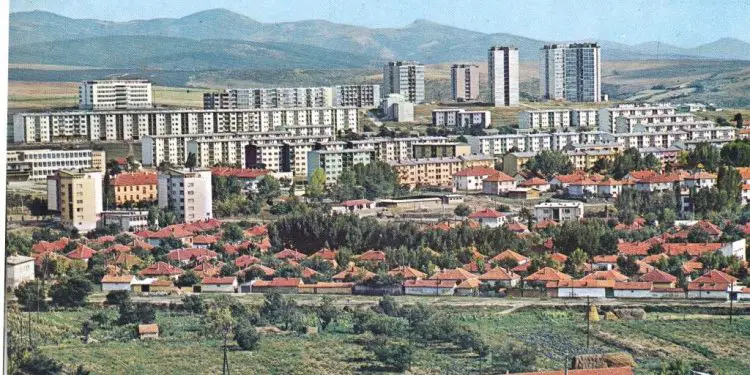
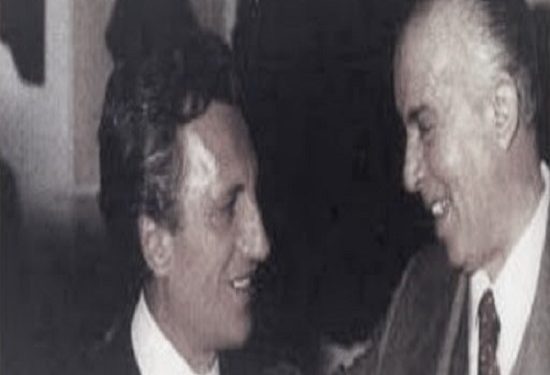
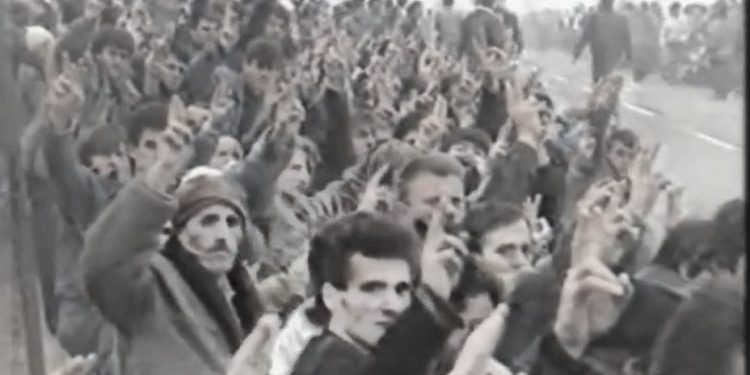
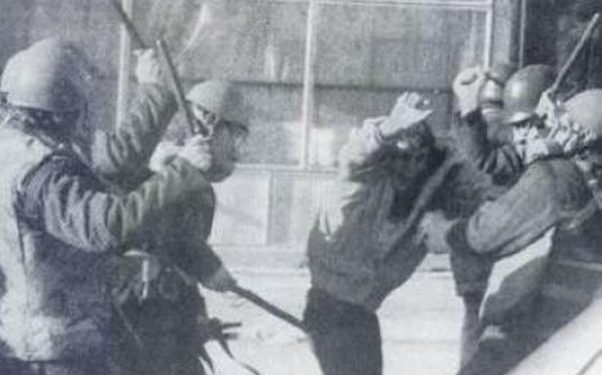
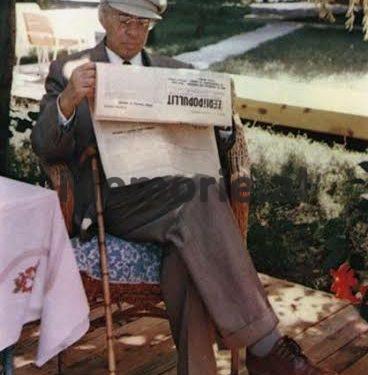
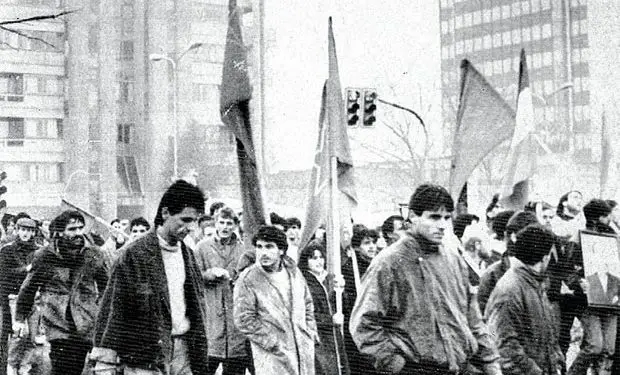
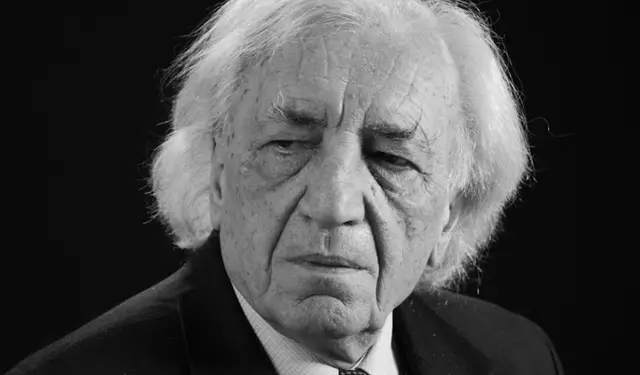
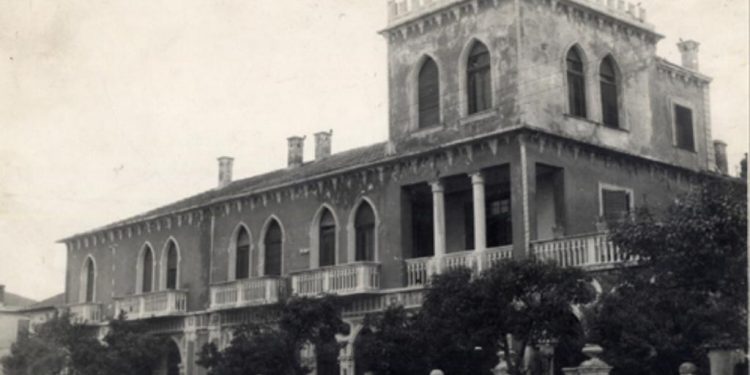
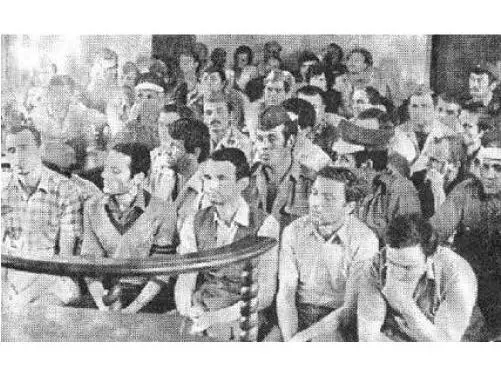
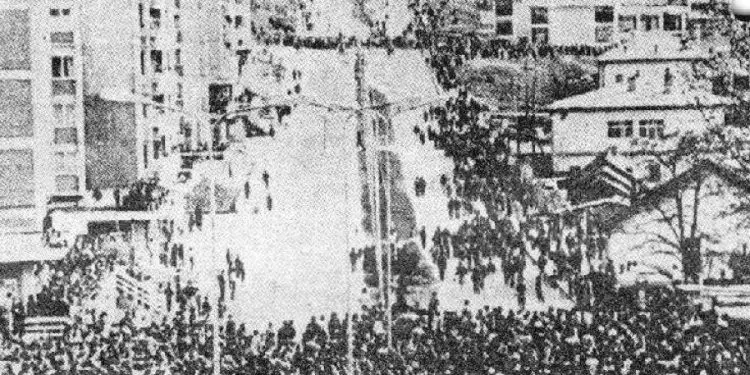
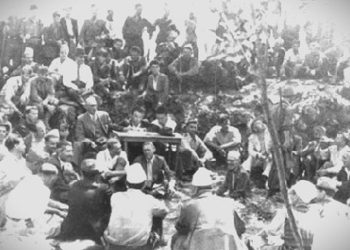
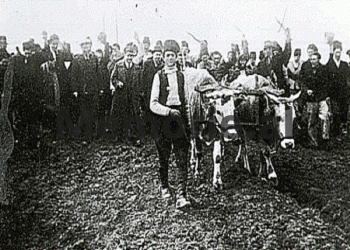
![“They have given her [the permission], but if possible, they should revoke it, as I believe it shouldn’t have been granted. I don’t know what she’s up to now…” / Enver Hoxha’s letter uncovered regarding a martyr’s mother seeking to visit Turkey.](https://memorie.al/wp-content/uploads/2026/01/Dok-1-350x250.jpg)

